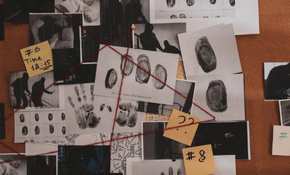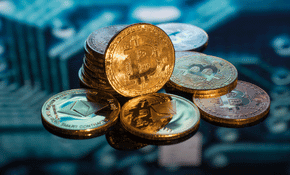The illegal wildlife trade (IWT) is a growing threat to biodiversity. This trade is becoming one of the most valuable illegal trade sectors. IWT threatens biodiversity and can have a negative impact on the economy. Hiding or laundering IWT revenues undermines financial integrity. Financial criminals facilitate money laundering activities by making billions of dollars of illegal trade in rhino horns, ivory, and other similar wildlife products.
What is the Illegal Wildlife Trade (IWT)?
The Illegal Wildlife Trade (IWT) is one of the threats to the hundreds of thousands of living species in the natural world. IWT turns pieces of wildlife into trade, endangering wildlife and disrupting the ecological balance. This trade is defined as the sale, use, and trade of animal and plant species obtained through illegal means. There is a large flow of money behind these activities, and often harmful methods that cause animals to suffer and threaten biodiversity are used.
One of the most common reasons for IWT is the high demand for rare species. These species are often obtained through illegal hunting or illegal collection. Parts of these animals can be sold in the pet markets or in international trade to be used for expensive jewelry or medicines. According to some, the annual size of IWT can reach billions of dollars, and this activity provides resources for terrorism, criminal organizations, and other illegal activities.
The effects of IWT are quite significant. The decrease in rare species causes disruption in the food chain, damage to ecosystems, and the disappearance of natural habitats. In addition, the extinction of wildlife species also affects the culture and heritage of local communities that depend on them for their livelihoods.
Efforts are being made globally to combat IWT. Governments, non-governmental organizations, and international agencies have taken steps to reduce demand, increase awareness, and strengthen enforcement. For example, there are international treaties such as the Convention on International Trade in Endangered Species of Wild Fauna and Flora (CITES) that regulate the trade of wildlife species. Additionally, public education and outreach campaigns, wildlife sanctuaries, and rescue centers are also important components of combating IWT.
Illegal Wildlife Trade (IWT) Relationship With Money Laundering
Criminals who engage in IWT often abuse the official financial industry to hide illegal revenues from wildlife crimes and engage in money laundering. According to a report released by the Financial Action Task Force (FATF) in June 2020, an estimated 7 to 23 billion dollars of illegal wildlife trade takes place annually.
The IWT involves the illegal sale, use, and trade of animal and plant species obtained through unlawful means. The criminals' trade products derived from more than 7,000 wild animal and plant species worldwide, including iconic mammals and less well-known species such as birds, amphibians, corals, reptiles, and bony fish. Some of the most commonly traded species include elephants, rhinoceroses, tigers, pangolins, and sea turtles.
The illegal wildlife trade has significant impacts on biodiversity and threatens the existence of many species. Poaching, trafficking, and trading wildlife can lead to the extinction of species, disrupt ecosystems, and cause significant damage to habitats. In addition, IWT can have serious social and economic impacts on local communities that rely on wildlife for their livelihoods.
The FATF report aims to provide guidance on measures that can be taken to combat money laundering from the illegal wildlife trade. The report highlights that making a profit from IWT is one of the most effective ways of laundering money, but there is a lack of monitoring of the financial flows of wildlife smugglers. This means that countries have not focused enough on the financial aspect of this crime, allowing criminals to expand their activities in this area.
To combat IWT, it is important to address the financial aspects of the crime, as well as take other measures to reduce demand, increase awareness, and strengthen enforcement. Governments, non-governmental organizations, and international agencies have taken steps to regulate the trade of wildlife species, such as the CITES. Public education and outreach campaigns, wildlife sanctuaries, and rescue centers are also important components of combating IWT.
In conclusion, the illegal wildlife trade is a significant threat to biodiversity and is linked to other organized crimes such as money laundering, drug trafficking, and arms trade. It is important to address the financial aspects of this crime and take measures to reduce demand, increase awareness, and strengthen enforcement to combat IWT. By doing so, we can help to protect our natural world and the many species that depend on it.

Methods Used for The Illegal Wildlife Trade
Criminals engage in IWT using a variety of methods to hide payments and launder the revenues of their illegal activities. One of the primary methods they use is shell companies. These companies are often used to facilitate the transfer of value among the members of the criminal organization, between buyers and sellers, or to hold assets. Criminals may also use legitimate front companies to hide the transfer of value from IWT.
- In addition to shell companies, criminals use the import-export industries to demonstrate the movement of goods and payments across borders legally. They may use vulnerable sectors such as breeding facilities, pet shops, zoos, decor, and the fashion industry to clear their income. These sectors can provide cover for the movement of illegal wildlife products and money, as they are often poorly regulated and have weak enforcement mechanisms.
- To transfer illegal funds, criminals often use third-party accounts via bank transfers through e-banking platforms, loans or payments, licensed money transfer systems, and banks. They may also use innocent bank mules to transfer funds, making their illegal transactions less noticeable. These methods allow for the laundering of money obtained through IWT, making it difficult to trace the proceeds back to their illegal origin.
- With the development of online markets and mobile, social media-based payments, the Illegal Wildlife Trade has increased. Criminals can easily market and sell their illegal products using social media platforms and online marketplaces, which makes it easier to reach a wider audience and conduct transactions anonymously.
The use of these methods highlights the need for greater regulatory measures to combat IWT. Governments, and international agencies can strengthen regulations and enforcement mechanisms to prevent the use of shell companies, front companies, and vulnerable sectors as conduits for illegal wildlife products and money laundering. They can also work to raise awareness among the public and key stakeholders about the negative impacts of IWT on biodiversity and human society.
Cooperation in Financial Crimes Related to The Illegal Wildlife Trade
According to the FATF Recommendation, all jurisdictions require that Illegal Wildlife Trade identify, assess, and take action to reduce the risks of money laundering and terrorist financing. Moreover, As stated in the FATF report, if criminal offenses related to money laundering caused by Illegal Wildlife Trade abroad occurred in another country, this should definitely constitute a crime. As a result, wildlife crime committed abroad as a basis for money laundering should be not only able to provide international cooperation in cases where double criminality is required but also through domestic investigations and prosecutions.
On the other side, cooperation between the public and private sectors is important for identifying and disrupting IWT-related financial flows. Especially in jurisdictions with public-private partnerships, there has been an interaction between the public sector and financial institutions in the monitoring of crimes related to IWT. Collaborations include both strategic and operational information exchange. As a result of the FATF survey, most of the countries' cooperation in combating IWT-related financial crimes is realized within the financial sector and, to a lesser extent, among non-financial sectors.

FATF Recommendations in Combating IWT
FATF, an intergovernmental organization that develops and promotes policies to combat money laundering and terrorism financing, has released several recommendations to combat money laundering from IWT.
- FATF has recommended that countries should develop a comprehensive national risk assessment (NRA) to identify and assess the risks associated with IWT. This assessment should consider the nature and scale of IWT activities, the vulnerabilities in the financial and non-financial sectors that criminals use to launder the proceeds of IWT, and the effectiveness of the measures in place to prevent and detect money laundering from IWT.
- It has recommended that countries should establish a comprehensive legal and regulatory framework to combat money laundering from IWT. This framework should include criminalizing IWT, establishing penalties for IWT-related offenses, and ensuring that competent authorities have the necessary legal powers and resources to investigate and prosecute money laundering from IWT.
- It recommends that countries should strengthen their preventive measures to combat money laundering from IWT. This includes measures such as customer due diligence (CDD) and know-your-customer (KYC) procedures for financial institutions and designated non-financial businesses and professions (DNFBPs) such as dealers in precious metals and stones, real estate agents, and lawyers. These measures aim to identify and verify the identity of customers, assess the risks associated with their activities, and monitor their transactions.
- It has recommended that countries should enhance their international cooperation to combat money laundering from IWT. This includes exchanging information and intelligence with other countries, enhancing cooperation between law enforcement agencies, and facilitating mutual legal assistance to investigate and prosecute IWT-related offenses.
- Finally, It has emphasized the importance of public-private partnerships (PPPs) in combating money laundering from IWT. These partnerships involve collaboration between governments, financial institutions, DNFBPs, civil society organizations, and other stakeholders to share information, resources, and expertise to prevent and combat IWT-related money laundering.






